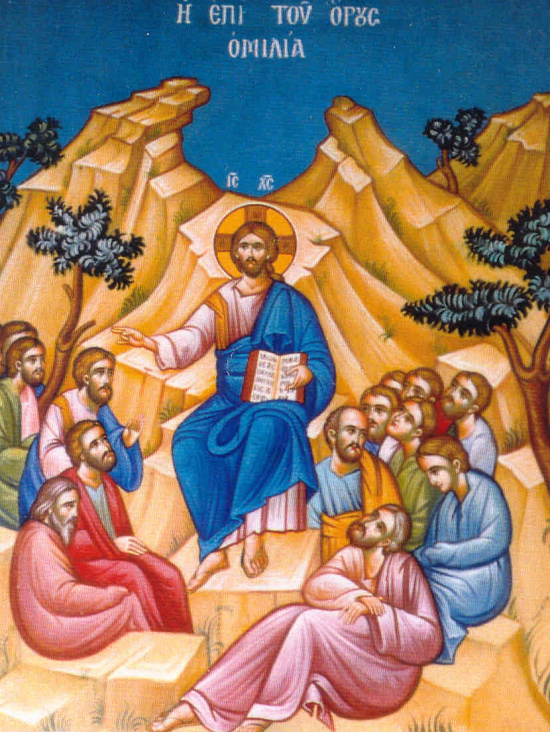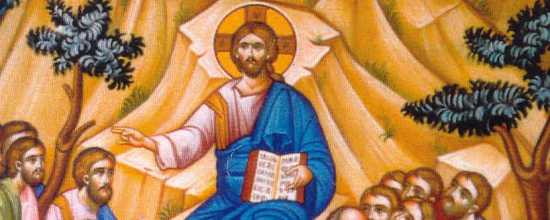What’s with Prayer?
Scripture Readings

It’s confusing. It seems like there are as many definitions of prayer and ways to pray as there are religions. Like Jesus’s disciples, the most common complaint people raise about prayer is that they don’t know how to do it. They’ve tried the ways that they’ve been taught, but it doesn’t seem to “work.” In Luke’s gospel, as in Matthew’s, the disciples ask Jesus, “Lord, teach us to pray.” In response, Jesus instructs them in what we call the “Lord’s Prayer.” Ever since then, people have been reciting the words, but is it really a formula to be learned by rote, or is it, perhaps a template for prayer?
Jesus’s prayer is addressed to Yahweh God in very personal terms. In both Luke and Matthew, Jesus calls on God as “Father,” implying an intimate, familial relationship. For Matthew, it’s “Our Father,” a relationship between the community of believers and their common Father, God. For Luke, it’s just “Father,” bringing the relationship down to one-on-one, parent and child, I and Thou.
For the Jews of Jesus’s time, the God of Abraham, Isaac, and Jacob was far removed from his people, despite the relationship forged between them by the Covenant. God was unapproachable in the Holy of Holies of the Temple with a Name that could not be spoken. Suggesting a personal intimacy with the Almighty, the Eternal One, was a radical departure from contemporary practice and spirituality. Thus, Jesus’s prayer bridges the chasm between the parent-child relationship of “Father” and the unapproachable sacredness of the Name. The “heaven” that Jesus refers to as the dwelling-place of God is not the abode of the dead that we imagine. It is, rather, that Kingdom that we pray to come where the infinite power of the Godhead expresses itself in, through, and beyond the march of history. It’s the culmination of all things drawn together into unity with God by the Holy Spirit. What follows in this prayer, is the unfolding and living out of that Kingdom.
The next petition in this prayer, and the parable that follows the prayer, both focus on one critical symbol: bread. It’s used in two distinct but related senses. First, bread is understood as the “staff of life,” representing all that’s necessary for us to live our physical and spiritual lives. Luke uses the present tense for the word give, to indicate an ongoing request for God to fulfill our constant needs. We look to the Father to sustain us day after day, hour after hour, minute upon minute.
The second symbolic sense in which bread is used is certainly eucharistic. The words of institution of the eucharist in all of the Gospels and in Saint Paul are the same: namely, Jesus took, blessed, broke, and gave the bread to his disciples. In this Lord’s Prayer, following immediately upon the blessing, “hallowed be thy name,” we ask that God give us this bread each day—the eucharistic bread that forms us into one body in Christ.
The eucharistic theme continues as we ask for reconciliation—”forgive us our trespasses.” We ask to be reconnected to our sisters and brothers and, as we are reconnected to the Body of Christ, that we be reconnected with the Father with whom we share one Spirit. Our reconciliation—our Communion—with God is inseparable from our reconciliation with one another. If we cannot give reconciliation to and receive reconciliation from one another, God cannot give, and we cannot receive reconciliation.
The phrase that ends this prayer, “do not subject us to the final test,” in Luke, and “lead us not into temptation but deliver us from the evil one,” in Matthew, both express a common longing to receive the grace of perseverance regardless of whatever trials or difficulties may arise for us. That’s the essence of the Lord’s Prayer.
Now, let’s look at the story that follows it. A person turns to their friend to ask for what they need—that is, bread. Incidentally, the bread is not needed to satisfy their own needs, but to provide essential hospitality for others. The reluctance of the friend is met with persistence. The lesson of the parable is an exhortation to persevere in prayer.
Why should we persevere if prayer doesn’t work? How often have we prayed very hard for something, and not received it? The problem doesn’t lie in the prayer. After all, nowhere in this entire gospel passage does it even suggest that we’ll receive exactly what we ask for, does it? It only promises that we will receive what we need. God doesn’t require us to tell him what we need, nor does it help to give God advice on how to operate the universe. Prayer doesn’t change God. It does, however, change us. It empowers us to align our wills with God’s will—whatever that may be. Isn’t that what we are praying for when we say, “Thy will be done on earth as it is in heaven?” In other words, aren’t we praying God to help us align our personal worlds and their destinies with God’s universe and its eternal purpose?
But prayer does change things, doesn’t it? We’ve all experienced it. If prayer doesn’t change God, how is that possible? To answer that question, let me ask another. What do you suppose is the most powerful force in the universe? Some would say gravity because gravity is capable of warping space and time. But there’s a force even gravity must yield to, and that’s the human will. Not even God can change your mind. You are part of the consciousness and the will of the universe. Every one of your thoughts and desires changes everything. When you align the most powerful force in the universe with the will of God, miracles happen. That’s the power of prayer, yet few people are conscious of it. Why is that?
Most people don’t persevere in prayer because of their own flawed expectations. They want results, and they want certain kinds of results. Some want to feel a certain way. They call it a “spiritual experience,” but what they’re really after is an emotional “high.” They don’t realize that many spiritual experiences that come from or with prayer are either uncomfortable or downright painful. Most spiritual experiences feel like blah. Emotions are no measure of the effectiveness of prayer.
Others demand that their expectations be met. They want what they want when they want it. Yet, oddly enough, God is the supreme provider. In responding to our prayer, God always exceeds our expectations because our expectations are too small. So much of the time, we fail to recognize the answers to our prayers because they don’t resemble our expectations.
That’s why the key to prayer is perseverance. The more we turn our wills over to the will of God, the more miraculous our lives will seem. We are all part of a massive movement like a giant river flowing together into the future. That’s God’s Kingdom. All things—that means all things—work together for the good. We call it the will of God. And we have a choice to become part of the flow, or to buck it. And, when we resist, our needs—our daily bread—will not be met and our communion with our fellows and with God will languish. When we pray, we become part of that great flow into the future, and our needs and the needs of our world are met, whether we recognize it, or not.
So, my dear friends, let us pray.
Get articles from H. Les Brown delivered to your email inbox.
